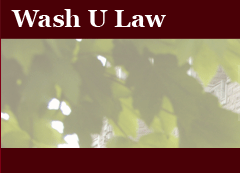Experimenting with Problem-Based Learning in Constitutional Law
Publication Title
Washington University Journal of Law & Policy
Abstract
Problem-based learning (PBL), first developed for use in a professional setting at McMaster University in Ontario, Canada in the 1960s, is an approach to adult education that has gained widespread acceptance in medical education, most notably in the United States at Harvard Medical School. The goal of PBL is to develop students’ skills at “clinical reasoning” and “self-evaluation and study.” In other words, the problem-based approach emphasizes applied knowledge and aspires to help students learn how to learn. In the spring semester of 2001, I adopted a variant of the PBL approach in my Constitutional Law II course, which covers the Fourteenth Amendment and is an elective open to second- and third-year law students. In the body of this Essay, I first elaborate the concerns that led me to tinker with, and eventually abandon, the Socratic method of teaching in Constitutional Law II. I next briefly describe the various active learning techniques I tried before settling on PBL, and assess them from the standpoint of the concerns that led me to them. Finally, I provide a detailed account of my semester with PBL, and analyze its successes and failures in light of its own internal objectives as well as my and my students’ concerns and goals.
Recommended Citation
Barbara J. Flagg,
Experimenting with Problem-Based Learning in Constitutional Law,
10
Wash. U. J. L. & Pol’y
101
(2002),
https://openscholarship.wustl.edu/law_journal_law_policy/vol10/iss1/6
